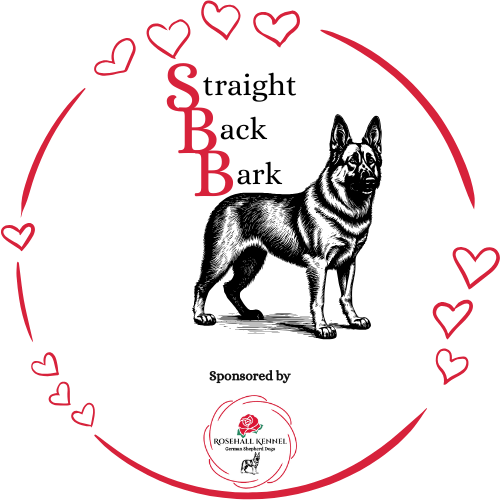February is not just the Month for celebrating love and friendship; it's also the perfect time to focus on the importance of educating ourselves and our beloved German shepherds. Dog Training Education Month aims to raise awareness about the benefits of proper training and the role it plays in creating a harmonious bond between owners and their German shepherds.
Training our dogs goes far beyond teaching them basic commands or tricks. It's about fostering a positive and respectful relationship, ensuring their safety, and enhancing their overall well-being. By dedicating this month to dog training education, we can empower German shepherd owners to become more responsible and knowledgeable, leading to happier and healthier shepherds.
The Main Goals of Dog Training Education Month: Debunk Common Misconceptions
One of the primary goals of Dog Training Education Month is to debunk common misconceptions surrounding Dog training. Many people believe that training is necessary for dogs with behavioral issues or those participating in competitions.
However, every dog, regardless of breed, size, or age, can benefit from training. It helps prevent unwanted behaviors, such as excessive barking, digging or aggression and promotes good manners and obedience.
Some of the common misconceptions about dog training include:
- Older Dogs Can't Learn New Tricks: Though this is a widely held belief, it is false. Dogs of any age can learn new behaviors and commands with the proper training methods and consistency.
- Training Must Be Dominance-Based: Training methods such as physical force and alpha rolling do not work well with most breeds, including German shepherds. They may make an anxious dog more anxious, which can lead to aggression.
- Dogs Should Learn on Their Own: Some people believe that dogs will learn on their own. While this is partially true, they can only learn so much. Dogs prefer guidance and clear instructions, especially those with a higher prey drive. They need a "job," and training is a job for them. Shepherds are herding dogs and are bred to have higher prey drives—even those who are bred to be family-friendly dogs.
- All Training Methods Work for All Dogs: Just as different humans learn using different methods, so do dogs. What works for one dog may not work for another one. It is your job as a dog owner to figure out what works best for your dog—or to work with an experienced dog trainer to achieve the results you need.
- Dogs Understand Human Language: While the general consensus is that dogs do not understand us, there are many examples where dogs with higher intelligence, such as the German shepherd or Belgian Malinois, can understand the human language. They, like most dogs, also rely on tone, body language and context.
- Dog Training is Only in Formal Sessions: This is one of the biggest myths out there. You should be working with your dog every day. Even when you are not consciously training, you are training them with your actions and words. You can also work with your dog for one or several short sessions each day in your own home to reinforce training from a professional trainer.
- All Aggressive Dogs Are Untrainable: Actually, there are very few aggressive dogs that cannot be trained. Often, those that cannot be trained have psychological issues. Dog obedience behavior training can go a long way in curbing aggression.
- Crate Training is Cruel: On the contrary. Crate training teaches your dog that it has a safe space to relax. It also keeps them out of trouble—the kind that can cause extensive vet bills should they eat something they shouldn't. Crates should never be used for punishment.
Proper training also plays a crucial role in ensuring the safety of your German shepherd and those around them. German shepherds who are trained to walk on a loose leash, come when called or stay when told are less likely to run into dangerous situations or cause harm to others. This education month serves as a reminder to German shepherd owners that investing time and effort into training can ultimately save lives.
Emphasize The Importance of Positive Reinforcement Training
Gone are the days of dominance-based training methods that relied on fear and intimidation, which can cause stress and fear among German shepherds, who are very sensitive to harsh training styles. Today, trainers and pet owners use positive reinforcement, rewarding dogs for desired behaviors rather than punishing them for mistakes.
This approach not only builds trust but also strengthens the bond between owners and their German shepherds, making the training process more fun and enjoyable. German shepherds are so easy and fun to train; they are highly intelligent and want, most of all, to please their owners. It's never too late to begin training and building a beautiful relationship through obedience.
Contact a Dog Trainer Near You
If you do not have extensive experience in dog training, locate an experienced dog trainer near you. Be sure to check the organization's references and ask for recommendations, as poor training is worse than no training at all.





Comments